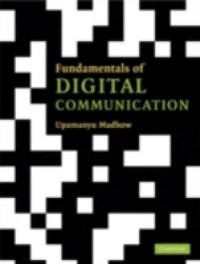This is a concise presentation of the concepts underlying the design of digital communication systems, without the detail that can overwhelm students. Many examples, from the basic to the cutting-edge, show how the theory is used in the design of modern systems and the relevance of this theory will motivate students. The theory is supported by practical algorithms so that the student can perform computations and simulations. Leading edge topics in coding and wireless communication make this an ideal text for students taking just one course on the subject. Fundamentals of Digital Communications has coverage of turbo and LDPC codes in sufficient detail and clarity to enable hands-on implementation and performance evaluation, as well as 'just enough' information theory to enable computation of performance benchmarks to compare them against. Other unique features include space-time communication and geometric insights into noncoherent communication and equalization.

